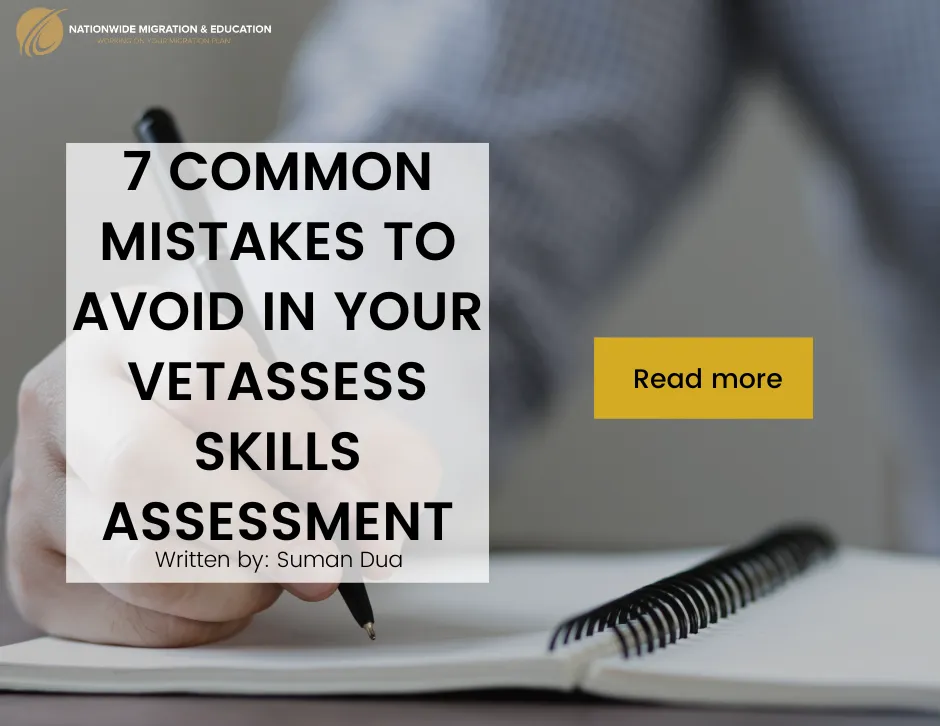Suman Dua MARN 1800859Aug 3, 20233 min read
Updated: Aug 16, 2023
VETASSESS sees these as the most common mistakes, which can delay or lead to a refusal of an application.
1. Not including the relevant qualification documents
There are additional requirements for qualifications obtained from specific regions of the world. These include China, Europe, the Philippines, and Lebanon.
You should understand the requirements for the documents specific to the country of origin.
2. Submitting an incomplete application
VETASSESS sometimes doesn't receive documents covering a particular period of employment or supporting proof of you completing a qualification. You must provide evidence of all the employment periods and formal academic qualifications related to your occupation, not just the most recent ones.
3. Assuming an occupation is assessed by occupation title only
The types of work done in one occupation can vary between countries, and applicants need to ensure they understand the requirements of their occupation in Australia. This is set by the Australian and New Zealand Standard Classification of Occupations (ANZSCO).Someone who does a particular job in their home country may find their application under this occupation unsuccessful because they need to meet the educational and work experience qualifications required for this role in Australia. It is essential to read the ANZSCO definition and tasks before submitting an application to understand the significance of the ANZSCO definition and the required skill levels. VETASSESS also have information sheets available for most occupations they assess. Vetasses offers an additional and optional Skills Assessment Support service for professional occupations, and this can be helpful for people seeking clarification about the criteria for an occupation.
The Service provides a 30-minute phone consultation about our skills assessment criteria for occupational classifications.
4. Not having sufficient employment duration when lodging an application. At least a full calendar year of employment within the last five years of the application lodgement date is required.
5. Lodging a Priority Processing application for a second or subsequent application. Priority Processing is only available to returning applicants:
6. Not providing the applicant's contact details (their phone number and email address) when an agent/lawyer is lodging the application. This can significantly delay the assessment process if an assessor needs to contact the applicant directly. Sometimes the assessor has a question or requires to verify qualification and/or employment information.
7. Not supplying original language and/or English translation documents
If documents are not issued in English, you must submit copies of the originals and an English translation made by a registered translation service. Documents in the original language must have a translation to be accepted.
An application will be assessed much more quickly if these mistakes are avoided.
Please note that VETASSESS posted these tips on their website some time ago.
If you are looking for advice on the VETASSESS Skills assessment application, we can help you choose the right occupation and lodge a decision-ready application.
DISCLAIMER: The information shared by Nationwide Migration and Education on social media and blogs is for general informational purposes only. (The information is accurate at the time of publication but may be subject to change.) It is not legal or immigration advice and should not be relied upon as such.
If you need immigration advice specific to your circumstances, please book a consultation with our Registered Migration Agent.
